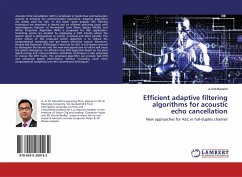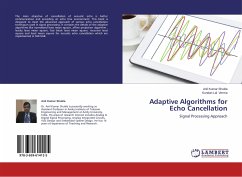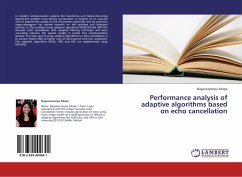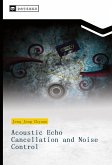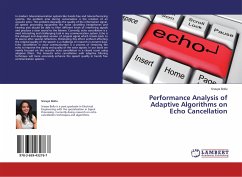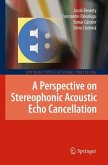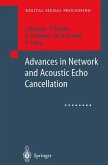Acoustic echo is a common occurrence in today s telecommunication systems. The distraction caused by the acoustic echo, reduces the speech quality in the communication. In the communication system acoustic echo cancelers is works as the far-end signal is delivered to the system, it will be reproduced by the loudspeaker in the room. A microphone in the room picks up the resulting direct path sound and consequent reverberation sound as a near-end signal. The reverberated signal is estimated by the adaptive filter and cancelled from the microphone signal. The AEC with adaptive filtering technique will more accurately enhance the speech quality in hands-free and teleconferencing systems. There are many adaptive algorithms available in the literature for echo cancellation and every algorithm have its own properties, but the aim of algorithms using for echo cancellation is to achieve higher ERLE(amount of echo cancelled)at a higher rate of convergence with low complexity.The performance evaluation of the NLMS, APA and RLS in AEC are discussed in this book.
Bitte wählen Sie Ihr Anliegen aus.
Rechnungen
Retourenschein anfordern
Bestellstatus
Storno


